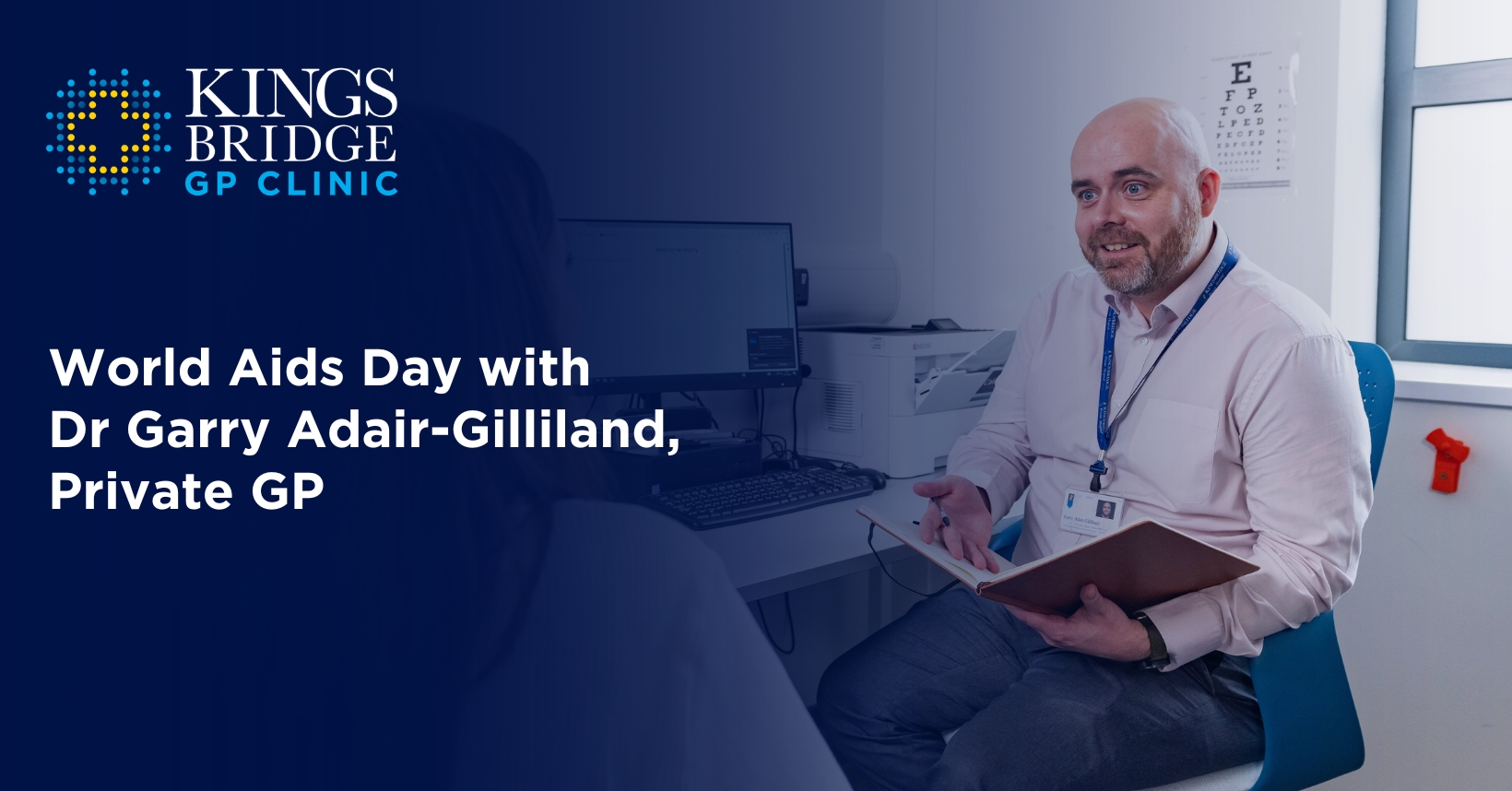World Aids Day with Dr Garry Adair-Gilliland
01st, Dec 2023

Today is World Aids Day, so we spoke to Dr Garry Adair-Gilliland, Private GP who provides some facts and bust some myths about the disease.
Facts
- HIV (Human Immunodeficiency Virus) is a virus that attacks the immune system, specifically the CD4 cells, weakening the body's ability to fight off infections and diseases.
- HIV is primarily transmitted through unprotected sexual intercourse, sharing needles for drug use, and from mother to child during childbirth or breastfeeding.
- HIV is not transmitted through casual contact like hugging, kissing, or sharing utensils. It is not spread through the air, water, or insects.
- There is no cure for HIV, but it can be managed with antiretroviral therapy (ART). ART helps people with HIV lead long and healthy lives while reducing the risk of transmission.
- HIV can be detected through blood tests, and early diagnosis is crucial for effective treatment and prevention of transmission.
Myths
- Myth: HIV can be spread through kissing, touching, or sharing food and drinks.
Fact: HIV is not spread through casual contact. It requires specific modes of transmission, as mentioned earlier.
- Myth: Only certain groups of people can get HIV.
Fact: Anyone, regardless of age, gender, sexual orientation, or race, can contract HIV if engaging in risky behaviours.
- Myth: You can tell if someone has HIV by their appearance.
Fact: You cannot determine if someone has HIV based on their appearance. HIV affects people from all walks of life.
- Myth: There is a cure for HIV.
Fact: As of my last knowledge update in January 2022, there is no cure for HIV, but ongoing research is being conducted to find a cure.
- Myth: HIV can be prevented by washing after contact with an infected person.
Fact: While good hygiene is essential, washing after contact with an infected person does not prevent the transmission of HIV. HIV prevention relies on safe practices and, in some cases, pre-exposure prophylaxis (PrEP).
If you have any concerns and would like to speak to a Kingsbridge GP about our Sexual Health Clinic or would like to book an appointment, please text BOOKGP to 66777 or click here.
Recent Articles

